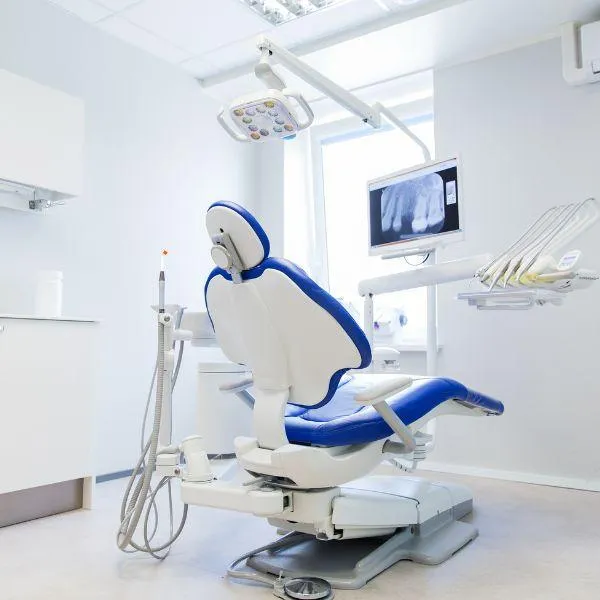115 Grand Ave #2, Englewood NJ 07631
Oral Surgery in Englewood Cliffs, NJ
If you’re searching for an oral surgeon near me in Englewood Cliffs, NJ, you’ve come to the right place. At Englewood Oral Surgery, our Board-Certified Oral & Maxillofacial Surgeon provides safe, effective, and compassionate care for patients who need advanced dental procedures.
From wisdom teeth removal to dental implants, our team is here to restore your comfort and oral health.
We welcome patients who need both planned procedures and urgent oral surgery services.
Blog

Trouble Chewing or Speaking? Corrective Jaw Surgery in New York
If you’ve found yourself struggling to chew your food properly, speak clearly, or even breathe comfortably, it might be more than just a minor inconvenience; it could be a sign that your jaw isn’t aligned the way it should be.
In this article, we have answered your questions, including what this surgery involves, whether it’s right for you, and what recovery looks like. This blog will walk you through everything you need to know, step by step.
What Is Corrective Jaw Surgery?

Corrective jaw surgery, also known as orthognathic surgery, is a procedure we perform to correct misalignments of the jaws and teeth. Sometimes, orthodontics (like braces) just aren’t enough on their own, especially when the bones themselves are not aligned properly.
Depending on the case, surgery may involve:
The upper jaw (maxilla)
The lower jaw (mandible)
Both jaws (for more complex misalignments)
At Englewood Oral Surgery, we use this surgery to:
Improve how your teeth bite together
Fix jaw-related breathing problems (like sleep apnea)
Make speaking and chewing easier
Reduce TMJ pain or muscle strain
Improve facial balance and appearance
It’s not just cosmetic, it’s about restoring balance so you can chew, speak, and breathe normally. Many of our patients love how they look after their jaw is realigned.
How Do I Know If I Need Corrective Jaw Surgery?

That’s a great question, and it’s one we hear often during our consultations. You may benefit from jaw surgery if you experience:
Chronic difficulty biting or chewing
Speech difficulties or slurring
Jaw pain or frequent popping/clicking
A noticeably receded or protruding jaw
An “open bite” where your front teeth don’t meet
Facial imbalance or asymmetry
Breathing problems, especially during sleep
Lips that don’t close naturally without effort
These symptoms may seem manageable now, but they can lead to bigger health and dental issues over time. The sooner we address the root cause, the better your long-term outcome will be.
What Causes Jaw Misalignment?

Jaw misalignment can be due to:
Genetics (you were born with it)
Trauma or injury to the jaw
Developmental issues (the upper and lower jaws grew at different rates)
Long-standing habits (thumb sucking, tongue thrusting, etc.)
Medical conditions like TMJ disorders
Whatever the cause, our job at Englewood Oral Surgery is to diagnose the issue and guide you to the best possible solution.
Your Journey with Us: Step-by-Step Process

Let’s break it down. If you're considering corrective jaw surgery, here’s what your journey at Englewood Oral Surgery would typically look like.
Initial Consultation
Your journey starts with a friendly, informative consultation with Dr. David Kessler. We will:
Review your health and dental history
Take imaging (digital X-rays, 3D scans)
Assess your jaw, teeth, and bite
Talk about your symptoms and goals
Determine whether surgery is appropriate for you
Pro tip: Bring a list of questions and concerns. We’re here to listen and explain everything.
Pre-Surgical Orthodontics
Most patients will need orthodontic treatment before surgery to align the teeth in preparation. This usually lasts 12–18 months, depending on your case.
Why do you need braces before surgery? Because we want your teeth to be in the correct position so that once we reposition your jaw, everything fits together perfectly.
Advanced Surgical Planning
This is where technology meets precision. We use advanced imaging and computer-guided planning to:
Create a virtual model of your jaw
Map out exact bone movements
Customize your surgical plan to millimeter-level accuracy
You’ll see simulated results before we even step into the OR. That way, you know exactly what to expect.
The Surgery

When the big day arrives, here’s what happens:
You’ll be under general anesthesia (fully asleep)
Dr. Kessler performs the surgery inside the mouth to avoid visible scarring
We reposition the jaw bones and secure them with small titanium plates and screws
In some cases, both the upper and lower jaws are involved
The procedure usually takes 2–4 hours, depending on complexity
You may stay in the hospital overnight or go home the same day, depending on your specific situation.
Recovery: What to Expect
Let’s talk about what happens after surgery. Recovery isn’t instant; it will happen over time. Our team will guide you through everything.
Week 1:
Expect swelling, bruising, and some numbness
You’ll be on a liquid diet
Pain is managed with medication
Keep your head elevated and rest often
Weeks 2–6:
Switch to soft foods (smoothies, soups, mashed foods)
Gradual reduction in swelling
Start light jaw movements (as guided)
You’ll begin to feel more like yourself
6 Weeks and Beyond:
Most patients return to work or school within 2–4 weeks
Full healing takes 3–6 months for bones to fully fuse
Your orthodontist will finish aligning your teeth during this phase
Note: This is not the final timeline. This is just for reference.
We stay with you every step of the way. You’ll have regular follow-up appointments to ensure everything is healing properly and that your bite is coming together beautifully.
Will It Change the Way I Look?
Yes, in the best way possible. Because jaw surgery restores facial balance, many patients notice:
A stronger jawline
A more symmetrical smile
Better lip closure
Improved profile (especially if you’ve had an underbite or receded chin)
We’re not changing who you are; we’re helping your natural features align the way they were meant to.
Is Corrective Jaw Surgery Safe?
Corrective jaw surgery is very safe when performed by an experienced, board-certified oral surgeon like Dr. Kessler, who has both medical and dental degrees.
As with any surgery, there are risks (temporary numbness, infection, bleeding), but we take every precaution to minimize them. Our patients are thoroughly screened, and your surgical plan is tailored to your unique anatomy and health history.
Does Insurance Cover Jaw Surgery?
It depends, but the good news is: yes, many insurance plans do cover it, especially if it’s medically necessary.
Coverage may apply if:
You have a documented bite issue
You're experiencing TMJ problems
You have a sleep disorder like sleep apnea
Your daily functions, like chewing and speaking, are affected
Our insurance and billing team will help you:
Determine if your plan covers surgery
Submit pre-authorizations and paperwork
Work out financing options if needed
Why Choose Englewood Oral Surgery?

We know you have choices in the New York–New Jersey area. So why choose us?
Here’s what sets us apart:
Expertise: Dr. David Kessler has performed thousands of complex jaw procedures over 20+ years. You’re in skilled hands.
Advanced Technology: We use state-of-the-art imaging and surgical planning software for precision and better outcomes.
Personalized Care: We treat our patients like our family from their first call to their final follow-up.
Convenience: Located in Englewood, NJ, we serve patients across New York and New Jersey.
Team Approach: We work closely to ensure your treatment is seamless.
Common Questions We Hear
Will I have my jaw wired shut?
Not usually! We use rigid fixation (tiny plates and screws), so in most cases, no wiring is needed. You’ll wear rubber bands to guide your bite.
Will I be in pain?
You’ll have discomfort (especially during the first week), but we’ll give you the tools to manage it. Most patients are surprised by how manageable it is.
How long until I can eat normally again?
You’ll be on a liquid/soft food diet for about 6 weeks. After that, we’ll guide you on slowly reintroducing regular foods.
Will I need time off work/school?
Plan for at least 2 weeks of rest. Most people feel ready to return between 2 and 4 weeks post-surgery.
Oral Surgery in Englewood Cliffs, NJ
If you’re searching for an oral surgeon near me in Englewood Cliffs, NJ, you’ve come to the right place. At Englewood Oral Surgery, our Board-Certified Oral & Maxillofacial Surgeon provides safe, effective, and compassionate care for patients who need advanced dental procedures.
From wisdom teeth removal to dental implants, our team is here to restore your comfort and oral health.
We welcome patients who need both planned procedures and urgent oral surgery services.
Process
The Dental Implant Process
The dental implant process we use is extremely well planned out, and effective:

Consultation
We evaluate your oral health, discuss your goals and select the ideal implant procedure for you.

Treatment Plan
Treatment Plan We use cutting-edge imaging to generate a phenomenon plan that is unique to your anatomy.

Surgically implanting the implant
The dental implant is inserted into the jawbone under local anesthetic.

Recovery Time
It will be a few months for the implant to form a union with the bone (osseointegration).

Abutment and Crown Orientation
Regular drilling completed (implant completely healed), the abutment is secured to the implant and finally, the crown is placed to restore the tooth.
Why Englewood
Why Englewood Oral Surgery and Dental Implant Center?
The dental implant process we use is extremely well planned out, and effective:
Experience : We have a very experienced team in implant dentistry will little chance of failure.
Advanced Technology : We use state of the the art imaging and surgical techniques for accurate implant placement.
Customized Treatment : We design a custom treatment plan to suit you personally.
Holistic Care : We offer complete implant services from consultation to aftercare all in one place.
Englewood and Nearby Areas Served
Englewood Oral Surgery is proud to provide oral surgery services to Englewood, Bergenfield, Fort Lee, Tenafly, and surrounding communities. With a great location and hours that fit your schedule, you cannot go wrong!

Patient Testimonials
Read what our patients say about their experience at Englewood Oral Surgery
Dr. David and her team were absolutely incredible during my wisdom teeth extraction. I was nervous going in, but their professionalism and care made it a smooth experience. Highly recommend!
Sarah Johnson
Wisdom Teeth Extraction Patient
The team at Englewood Oral Surgery made me feel at ease right from the first consultation. Dr. David Kessler's expertise and gentle approach were exactly what I needed.
Michael Garcia
Dental Implants Patient




